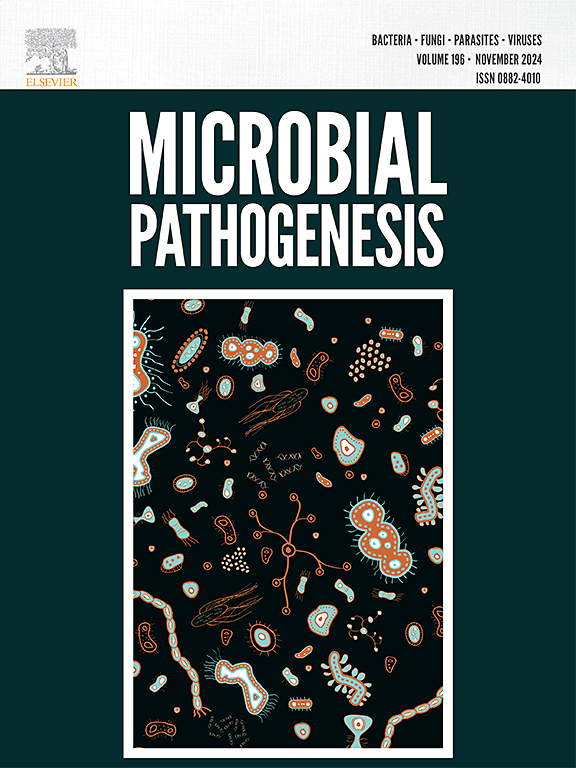噬菌体是防治粪便环境中典型致病菌大肠杆菌的一种很有前景的方法。
IF 3.5
3区 医学
Q3 IMMUNOLOGY
引用次数: 0
摘要
厕所粪便是环境污染和公共卫生问题的主要来源,含有多种病原体。噬菌体治疗具有特异性高、安全性好、增殖快等优点,是一种很有前途的生物防治方法。在本研究中,以大肠杆菌(E. coli)为目标病原体,从粪便中分离到的噬菌体LYE-01表现出很强的环境耐受性。它在4-11的pH范围内存活,在10-50°C的温度下,紫外线照射长达20分钟。综合基因组分析显示,LYE-01不含毒力和耐药基因,证实其对环境和人类健康都是安全的。在评估噬菌体对致病菌的去除效果的实验中,LYE-01在不同感染多重性(multiplicity of infection, MOI)条件下均表现出对宿主细菌的抑制作用。在最佳MOI=1时,LYE-01对大肠杆菌的最高失活效率为64.5%,为该噬菌体的后续应用提供了重要的实验依据。这种新分离的噬菌体代表了减少粪便污水污染,减轻环境污染和改善农村环境卫生的有前途的工具。本文章由计算机程序翻译,如有差异,请以英文原文为准。
Bacteriophage as a promising approach for the biocontrol of typical pathogenic bacteria Escherichia coli in fecal environment
Toilet feces are a major source of environmental pollution and public health issues, harboring a wide range of pathogens. Bacteriophage therapy, a promising biological control method for eliminating pathogenic bacteria, offers advantages such as high specificity, safety, and rapid proliferation. In this study, the bacteriophage LYE-01, isolated from feces using Escherichia coli (E. coli) as the target pathogen, demonstrated strong environmental tolerance. It survived within a pH range of 4–11, at temperatures of 10–50 °C, and following ultraviolet irradiation for up to 20 min. Comprehensive genomic analysis of LYE-01 revealed an absence of virulence and antibiotic resistance genes, confirming its safety for both environmental and human health. In the experiments of evaluating the bacteriophage's efficacy in removing pathogenic bacteria, LYE-01 exhibited an inhibitory effect on its host bacteria across different multiplicity of infection (MOI) conditions. The highest inactivation efficiency of LYE-01 on E. coli was 64.5 % at the optimal MOI = 1, providing a crucial experimental basis for the subsequent application of this bacteriophage. This newly isolated bacteriophage represents a promising tool for reducing fecal sewage contamination, mitigating environmental pollution, and improving rural environmental health.
求助全文
通过发布文献求助,成功后即可免费获取论文全文。
去求助
来源期刊

Microbial pathogenesis
医学-免疫学
CiteScore
7.40
自引率
2.60%
发文量
472
审稿时长
56 days
期刊介绍:
Microbial Pathogenesis publishes original contributions and reviews about the molecular and cellular mechanisms of infectious diseases. It covers microbiology, host-pathogen interaction and immunology related to infectious agents, including bacteria, fungi, viruses and protozoa. It also accepts papers in the field of clinical microbiology, with the exception of case reports.
Research Areas Include:
-Pathogenesis
-Virulence factors
-Host susceptibility or resistance
-Immune mechanisms
-Identification, cloning and sequencing of relevant genes
-Genetic studies
-Viruses, prokaryotic organisms and protozoa
-Microbiota
-Systems biology related to infectious diseases
-Targets for vaccine design (pre-clinical studies)
 求助内容:
求助内容: 应助结果提醒方式:
应助结果提醒方式:


